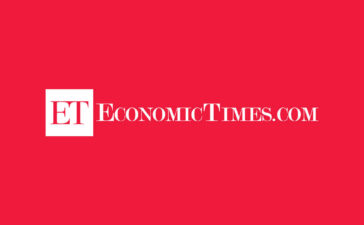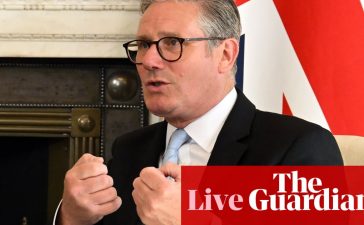Bank of England takes deeper look at private equity sector
The Bank of England said it is taking a deeper look at risks from the opaque private equity sector, and why valuations of Britain’s biggest banks are “subdued” compared with their international rivals.
The central bank’s financial policy committee said in a record of its quarterly meeting in March:
Finance for riskier corporates could be particularly vulnerable to a significant deterioration in investor risk sentiment.
The private equity sector, which is closely related to private credit and leveraged lending, plays an important role in channelling finance to the UK real economy. The sector has grown rapidly over the past decade when interest rates have been relatively low.
More recently, higher interest rates have made it more difficult for private equity funds to raise investment, contributing to downward pressure on asset valuations, and default rates on debt linked to private equity have increased.
It is difficult to assess asset valuations and leverage in the sector, making it harder to assess risks to wider financial stability, the FPC said, adding that it will publish a further assessment of these risks in the June financial stability report.
Meanwhile, Britain’s banking system is “well capitalised” and has “strong liquidity”, giving it the capacity to keep on lending even if economic and financial conditions were to worsen, the committee judged.
The UK banking system has sufficiently large capital buffers and other resources to absorb potential losses or outflows of cash. Because of these resources, UK banks are strong enough to support households and businesses, even if economic and financial conditions are worse than expected.
In the fourth quarter of last year, the major banks, such as NatWest, Lloyds, HSBC and Barclays had an overall core equity capital buffer of 14.7%, with an aggregate three-month moving average liquidity coverage ratio of 147%, the Bank said.
However, the central bank will undertake a “desk based” stress test of lenders this year to check on their resilience to shocks.
It said it would maintain the countercyclical capital buffer – a rainy day reserve – for major UK banks at its “neutral” level of 2%.
Overall profitability of major banks is expected to remain robust but indicators of market value of their future profitability, such as average tangible price to book ratios, remain subdued, the FPC said.
Key events
Closing summary
Tom Hayes, the first banker to be convicted over the Libor interest rate scandal, has said he is “not a quitter” and vowed to continue his near-10-year battle to clear his name after losing an appeal.
Hayes and another former banker, Carlo Palombo, had their convictions considered by the court of appeal in London in a three-day hearing. On Wednesday, it rejected their cases.
Hayes was found guilty in 2015 of several charges of conspiracy to defraud by “rigging” the now-defunct London Interbank Offered Rate (Libor). He served five and a half years in a UK prison and was released in January 2021.
Libor was a major interest rate benchmark which at its peak underpinned $300tn of financial contracts, including derivatives, bonds and loans. It has since been replaced by alternative interest rate benchmarks.
Shares in Donald Trump’s social media business rose nearly 18% in early trading on Wall Street, after making its stock market debut yesterday when they closed 16% higher.
The gains added $1.4bn to the firm’s market value, and took Trump’s personal stake to more than $5bn. Later, the shares were up 13%, valuing the firm at $9.3bn.
Trump Media & Technology is trading under the ticker symbol “DJT”, using Trump’s initials.
Our other stories:
Thank you for reading. We’ll be back tomorrow. Take care – JK
‘You’ve got to be joking’: Mandelson dismisses prospect of UK rejoining EU
Peter Mandelson has dismissed the prospect of an incoming Labour government taking Britain back into the EU, saying “you’ve got to be joking” that Brussels would want to renegotiate the UK’s membership.
The Labour peer, a former EU trade commissioner and close adviser to Keir Starmer, said rejoining the 27-country bloc would require a referendum that UK voters had little desire for, after the Conservatives’ botched handling of Brexit.
“I cannot see the British people running towards [a referendum] for love nor money after what we went through during the last one. I really do not think that people are going to run towards a repeat of that experience,” he told a British Chambers of Commerce (BCC) event at Heathrow airport on Wednesday.
Secondhand clothing on track to take 10% of global fashion sales
Secondhand clothing sales are on track to make up a tenth of the global fashion market next year, as the cost of living crisis and concerns over sustainability drives consumers towards “pre-loved” garments.
Global sales of pre-owned clothes surged by 18% last year to $197bn (£156bn) and are forecast to reach $350bn in 2028, according to a report by GlobalData for resale specialist ThredUp. The landmark is expected to be reached a year later than predicted, as global growth remains slightly behind previous estimates.
However, the US secondhand market grew seven times faster than overall fashion retail where sales were flat in 2023 from a year earlier.
Shares in Trump Media rise again on second day
Shares in Donald Trump’s social media business rose nearly 18% in early trading on Wall Street, after making its stock market debut yesterday when they closed 16% higher.
The gains added $1.4bn to the firm’s market value, and took Trump’s personal stake to more than $5bn. Later, the shares were up 13%, valuing the firm at $9.3bn.
Trump Media & Technology is trading under the ticker symbol “DJT”, using Trump’s initials.
More than 6 million shares changed hands, making it one of the most actively traded companies in the US, according to Bloomberg.
Trading was so volatile yesterday that it was briefly halted. At one point, shares in the group had jumped by more than 50%.
Trump Media’s arrival on the market netted the former president a paper fortune of some $4.6bn on the first day of trading. After the deal closed on Monday, Bloomberg said that Trump had joined the ranks of the world’s 500 wealthiest people for the first time.
And our full story on Tom Hayes:
Tom Hayes, the first banker to be convicted over the Libor interest rate scandal, has said he is “not a quitter” and vowed to continue his near-10-year battle to clear his name after losing an appeal.
Hayes and another former banker, Carlo Palombo, had their convictions considered by the court of appeal in London in a three-day hearing. On Wednesday, it rejected their cases.
Hayes was found guilty in 2015 of several charges of conspiracy to defraud by “rigging” the now-defunct London Interbank Offered Rate (Libor). He served five and a half years in a UK prison and was released in January 2021.
Libor was a major interest rate benchmark which at its peak underpinned $300tn of financial contracts, including derivatives, bonds and loans. It has since been replaced by alternative interest rate benchmarks.
Palombo, another banker, was sentenced to four years in prison in 2019 for rigging Euribor – the euro version of Libor.
Speaking outside the Royal Courts of Justice after the ruling, Hayes said the judges’ decision had been “a shock” and that he would try to appeal to the supreme court.
The former UBS and Citigroup trader said his situation was “not consistent” with laws in France, Germany and the US. “We’re in a very, very sort of Alice in Wonderland situation here,” he said, adding: “I’m used to losing.” He also said: “I’m a fighter, not a quitter. We haven’t given up.”
A spokesperson for the Serious Fraud Office said: “The court of appeal’s judgment is clear that these convictions for fraud are still as relevant today as 10 years ago. No one is above the law and the court has recognised that these convictions stand firm.”
Here is our full story on the UK packaging firm DS Smith:
An international bidding war is brewing for the UK packaging company DS Smith after a US-based paper producer put forward a £5.7bn takeover proposal, gatecrashing a deal it had agreed with the British rival Mondi.
DS Smith confirmed it was now in talks with International Paper, one of the largest paper and pulp companies in the world, over an all-stock offer, which would trump the £5.14bn deal put forward by Mondi earlier this month.
Sir Martin Sorrell’s ad agency posts lower sales and warns of further falls
Sir Martin Sorrell’s ad agency has reported a drop in annual revenue and warned of a further decline this year, sending its shares down 15.5%.
S4 Capital, founded by Sorrell, the executive chairman after he left the UK ad giant WPP in 2018, posted a 4.5% decline in like-for-like revenues to £873m for 2023 and said it expects clients to “remain cautious” in the coming months. It made a loss of £160.5m last year.
The firm said sales will continue to decline on a like-for-like basis this year, and explained that it had seen “longer sales cycles, particularly for larger transformation projects” affecting some technology clients, along with a reduction in smaller projects and with local and regional clients.
The company has been hit harder than rivals – WPP estimates sales growth of as much as 1% this year and France’s Publicis Groupe as much as 5%.
Sorrell appointed Jean-Benoit Berty, a former senior partner at the consultancy EY, as its new chief operating officer as part of a board reshuffle. Sorrell said:
After our first four strong net revenue growth years, we had a difficult 2023 reflecting challenging global macroeconomic conditions, fears of recession and high interest rates.
Berty’s “extensive management consulting experience will be of great value in focusing on the opportunities and challenges we face”, he added.
Morrisons sales growth hits three-year high

Sarah Butler
Morrisons has promised it is “embracing the start of our next chapter” with a “real sense of optimism and renewal” as sales growth hit the highest level in three years.
The company said sales rose by 4.6% in the three months to 28 January, up from 3.3% in the prior month and a bounce back from falling sales in 2022. However, the figures reflect a period of high inflation when food prices were rising by more than 6%, year on year, according to the British Retail Consortium.
Rami Baitiéh, boss of the UK’s fifth largest supermarket which has suffered from managing high levels of debt since a takeover by US private equity fund Clayton Dubilier & Rice in late 2021, said customer complaints were down almost 60% in the past five months as the company had improved availability and innovation on products and cut waste.
The company has also begun matching key product prices with discounters Aldi and Lidl since February and is also stepping up deals with franchise partners to open three convenience stores a week. He said:
In January I outlined our plan to reinvigorate, refresh and strengthen Morrisons as we started our next chapter. Those plans are now in full swing.
Across the business we have identified many areas where we can raise our game and make small improvements which collectively will result in a significantly enhanced shopping experience for our customers.
Tom Hayes loses appeal against rate-rigging conviction
Tom Hayes, the first trader jailed worldwide for interest rate rigging, has lost his appeal against his conviction in a London court.
Hayes, a former star UBS and Citigroup trader, was convicted in 2015 of conspiracy to defraud by manipulating Libor, a benchmark rate once used to price trillions of pounds worth of financial products globally.
Prosecutors said Hayes and other traders were acting illegally by taking their own or their employer’s commercial interests into account when they made submissions on the London interbank offered rate (Libor).
Hayes was released from prison in 2021 after serving what he called a “traumatic” five and a half years in custody, half his 11-year sentence.
His appeal against his conviction was heard alongside that of Carlo Palombo, a former Barclays trader convicted in 2019 of skewing Libor’s euro equivalent, Euribor.
Their cases were referred to the Court of Appeal in London after a landmark US court decision in 2022, in which two former Deutsche Bank traders’ convictions for Libor rigging were overturned.
Hayes and Palombo’s appeals were dismissed, senior judges announced today after a hearing which began last week. The decision can be appealed to the Supreme Court.
During his trial Hayes was described as the ringleader in a vast conspiracy to fix the Libor rate between 2006 and 2010.
A gifted mathematician who was diagnosed with mild Asperger’s syndrome shortly before his trial, Hayes was charged by both UK and US prosecutors, but a US court dismissed the charges in October 2022.
He earned millions of pounds for his work as a trader, but claimed during his trial that he was taking part in an “industry-wide” practice. He was convicted of eight counts of conspiracy to defraud.
When he was released from prison, Hayes said: “Today I begin the process of rebuilding my life and my shattered relationship with my son, Joshua.”
Photograph: Peter Nicholls/Reuters
German economy will barely grow in 2024, say institutes
The German economy will barely grow this year, according to the country’s leading economic institutes.
The institutes slashed their forecast for GDP growth to 0.1% this year, from 1.3%, as high interest rates, weak global demand and political uncertainty dent hopes for a stronger recovery. For next year, they are expecting growth of 1.4% rather than 1.5%.
Stefan Kooths, head of economic research at the Kiel Institute for the World Economy, said:
Although a recovery is likely to set in from the spring, the overall momentum will not be too strong.
The institutes’ report said economic output is barely higher than before the pandemic, as productivity has stalled.
There have recently been more headwinds than tailwinds in the domestic and foreign economies.
As inflation is expected to ease to 2.3% in 2024 and 1.8% in 2025, private consumption is set to become the most important driver for the economy, followed by stronger exports. Unemployment is forecast to rise only slightly and fall again starting in the spring.
UK homeowners and businesses resilient to high interest rates – BOE
The Bank of England also said that mortgage holders and businesses are generally coping well with high interest rates, and problem debt levels are well below those seen after the 2008-9 financial crisis.
Its financial policy committee said in its latest quarterly report:
UK households and businesses have so far been resilient to the impact of higher interest rates.
UK households are still facing pressures from the increased cost of living and higher interest rates. But we now expect a smaller increase in the share of households spending a high proportion of their income on mortgage payments over the next two years than we did in December.
The overall share of households who are behind in paying their mortgages has risen slightly this quarter but remains low by historical standards.
We expect most UK businesses to continue to be resilient to higher interest rates and weak growth. But some are likely to struggle with higher borrowing costs – in particular, those firms in parts of the economy most exposed to a slower growth, or with a large amount of debt.
Bank of England takes deeper look at private equity sector
The Bank of England said it is taking a deeper look at risks from the opaque private equity sector, and why valuations of Britain’s biggest banks are “subdued” compared with their international rivals.
The central bank’s financial policy committee said in a record of its quarterly meeting in March:
Finance for riskier corporates could be particularly vulnerable to a significant deterioration in investor risk sentiment.
The private equity sector, which is closely related to private credit and leveraged lending, plays an important role in channelling finance to the UK real economy. The sector has grown rapidly over the past decade when interest rates have been relatively low.
More recently, higher interest rates have made it more difficult for private equity funds to raise investment, contributing to downward pressure on asset valuations, and default rates on debt linked to private equity have increased.
It is difficult to assess asset valuations and leverage in the sector, making it harder to assess risks to wider financial stability, the FPC said, adding that it will publish a further assessment of these risks in the June financial stability report.
Meanwhile, Britain’s banking system is “well capitalised” and has “strong liquidity”, giving it the capacity to keep on lending even if economic and financial conditions were to worsen, the committee judged.
The UK banking system has sufficiently large capital buffers and other resources to absorb potential losses or outflows of cash. Because of these resources, UK banks are strong enough to support households and businesses, even if economic and financial conditions are worse than expected.
In the fourth quarter of last year, the major banks, such as NatWest, Lloyds, HSBC and Barclays had an overall core equity capital buffer of 14.7%, with an aggregate three-month moving average liquidity coverage ratio of 147%, the Bank said.
However, the central bank will undertake a “desk based” stress test of lenders this year to check on their resilience to shocks.
It said it would maintain the countercyclical capital buffer – a rainy day reserve – for major UK banks at its “neutral” level of 2%.
Overall profitability of major banks is expected to remain robust but indicators of market value of their future profitability, such as average tangible price to book ratios, remain subdued, the FPC said.







